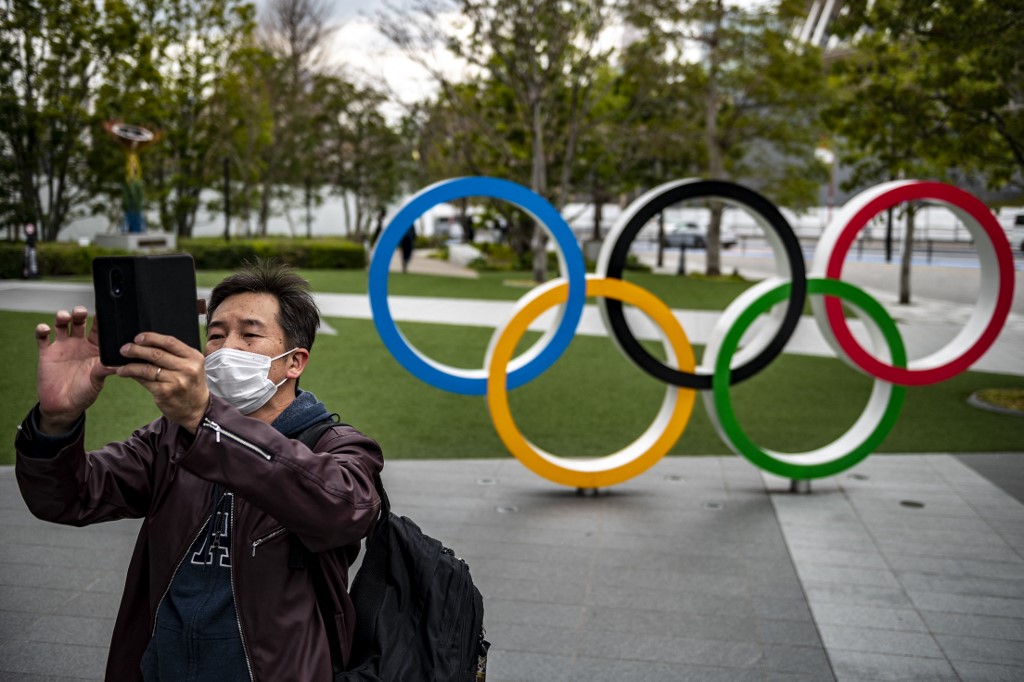
–
The organizers decided on Saturday: there will be no spectators from abroad at the rescheduled Tokyo Olympics this summer, due to significant health risks linked to the Covid-19 pandemic.
The Japanese parts of the organization have come to the conclusion that spectators “will not be able to enter Japan at the time of the Olympic Games”, scheduled for July 23 to August 8, a decision that the International Olympic Committee (IOC) and the Committee International Paralympic (IPC) “fully respect and accept,” according to a statement.
The health situation in Japan and abroad remains “very difficult”, and it is therefore “highly unlikely” that access to Japan will be guaranteed this summer for visitors from abroad, the organizers said.
Their statement was released after an online meeting, initially marked by an earthquake felt in Tokyo, between the five stakeholders in the Games: the organizing committee and the city of Tokyo, the Japanese government. , the CIO and the CIP.
“Our first priority has been, is and remains the safety of all participants in the Olympic Games and of the Japanese people”, declared in the preamble of the meeting Thomas Bach, the president of the IOC, evoking “sacrifices on behalf of each one” .
Since the beginning of March, the Japanese media have been announcing that the Japanese authorities have already opted for a ban on spectators from abroad, due to the concern of the population of the country in the face of Covid-19 and its variants.
– Never seen –
The ban announced on Saturday is a historic first. “It never happened that foreign spectators were banned from entering the host country at Games time, even during the Spanish flu during the Antwerp 1920 Olympic Games”, recalled Jean-Loup Chappelet, professor. emeritus at the University of Lausanne (Switzerland) and specialist in the Olympic Games.
A headache is looming to reimburse hundreds of thousands of tickets sold outside Japan and to cope with this shortfall, while the Tokyo-2020 budget has already reached 13 billion euros, a record for the Olympic Games of summer.
Another decision is expected to be made in April, or even later, on the gauge of Olympic venues for the public residing in Japan.
Other draconian measures against Covid-19 are planned to ensure a “safe environment” for the Tokyo Games, which had been postponed for a year last year because of the pandemic.
Vaccination of participants will not be compulsory but the IOC strongly encourages it.
The “Pandemic Games” will especially focus on television, whose broadcasting rights are crucial for the IOC’s finances.
– “Anxiety” of the Japanese –
Since their forced postponement a year ago – another historic first, in peacetime – the Tokyo Olympics have given rise to a semantic shift reflecting the persistence of the global health crisis (appearance of variants, resurgences of the virus and reconfigurations in some countries), despite the arrival of the first vaccines.
Last summer, the organizers still wanted to make these Olympics a celebration of “humanity’s victory over the virus”.
But their rhetoric has radically changed in recent weeks by now insisting on “the anxiety” of the Japanese and “the priority” to give to their security.
Japan has so far mastered the health crisis better than other countries, but it has nonetheless experienced a sharp upsurge in infections between November and the end of January, forcing the government to temporarily reimpose a state of emergency much of the country. countries, including Tokyo.
The Japanese government launched a vaccination program in February, but which so far only concerns healthcare workers. Most of the country’s population should not be vaccinated by the Olympics.
For several months, Japanese public opinion has been overwhelmingly hostile to holding the Games this summer, preferring a further postponement or outright cancellation.
And a poll published on March 8 by the daily Yomiuri revealed that only 18% of Japanese people were in favor of allowing spectators coming from abroad for the Games.
–

